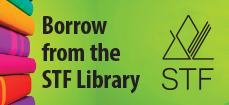Compose sound compositions in response to social issues (e.g., poverty, racism, homophobia, sustainability, gangs).
| (a) |
Examine the intentions, development, and interpretations of own and others' music expressions in relation to social issues (e.g., antiwar songs, music with environmental messages, hip hop songs that promote positive life choices). |
| (b) |
Create and perform own music compositions, improvisations, or song lyrics in response to a social issue of importance to students. |
| (c) |
Make interpretive decisions, demonstrating understanding of a variety of ways in which music concepts can be applied (e.g., tempo, dynamics, articulation, tone colour). |
| (d) |
Determine appropriate sound sources, forms, and processes for creating music expression. |
| (e) |
Explore and expand upon a musical idea to achieve more depth of meaning and expression. |
| (f) |
Generate and develop music ideas from a variety of sources regarding social issues of interest to students. |
| (g) |
Keep an ongoing record of ideas for own sound/music expressions (e.g., journals, audio tapes, video, blog, or web diary). |
| (h) |
Describe how compositions are personal expressions of own sound/music ideas. |
| (i) |
Extend understanding and use of traditional and non-traditional notational systems in representing sounds/music. |








In addition to supporting the Dance strand in the Arts Education curricula, this video could be used in Wellness 10 when discussing the impact of mental health on the wellbeing of self, family and community.
This is a particularly valuable resource for teachers who are working with at-risk students.






















This document will assist individuals and communities to engage in meaningful discussions and actions to respond to the experiences, perspectives and needs of students and families who are gender and/or sexually diverse (GSD).
Content includes:
- Gender and Sexual Diversity
- First Nations and Métis Ways of Knowing
- Assumptions, Privilege and Oppression
- Comprehensive School Community Health (CSCH)
- CSCH Approach to Creating Inclusive Schools





